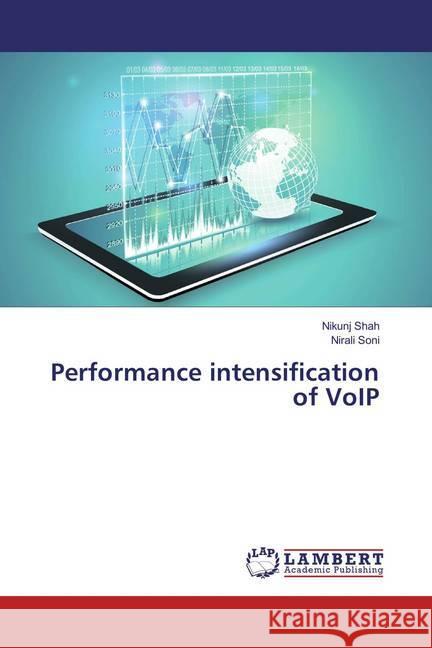topmenu
Wyniki wyszukiwania:
wyszukanych pozycji: 6
 |
Intensifikaciq proizwoditel'nosti VoIP
ISBN: 9786208621933 / Rosyjski / Miękka / 68 str. Termin realizacji zamówienia: ok. 10-14 dni roboczych. |
cena:
245,56 |
 |
Intensificação do desempenho da VoIP
ISBN: 9786208621926 / Portugalski / Miękka / 2025 / 68 str. Termin realizacji zamówienia: ok. 16-18 dni roboczych. |
cena:
241,98 |
 |
Intensification des performances de la VoIP
ISBN: 9786208621902 / Francuski / Miękka / 2025 / 68 str. Termin realizacji zamówienia: ok. 16-18 dni roboczych. La VoIP a été développée pour émuler les services de péage avec un coût de communication plus faible. Dans les applications VoIP, les voix sont numérisées et mises en paquets en petits blocs. Ces blocs vocaux sont encapsulés dans une séquence de paquets vocaux à l'aide du protocole RTP et transmis par l'utilisateur UDP. Pour aider les applications VoIP à gérer les performances imprévisibles du réseau, le RTCP est développé pour surveiller les performances des paquets RTP et fournir un retour d'information aux applications VoIP. Le retour d'information sur le retard des...
La VoIP a été développée pour émuler les services de péage avec un coût de communication plus faible. Dans les applications VoIP, les voix sont...
|
cena:
241,98 |
 |
Leistungssteigerung von VoIP
ISBN: 9786208621957 / Niemiecki / Miękka / 2025 / 68 str. Termin realizacji zamówienia: ok. 16-18 dni roboczych. VoIP wurde entwickelt, um gebührenpflichtige Dienste mit geringeren Kommunikationskosten zu emulieren. In VoIP-Anwendungen werden Stimmen digitalisiert und in kleine Blöcke aufgeteilt. Diese Sprachblöcke werden in einer Folge von Sprachpaketen unter Verwendung des RTP gekapselt und vom Benutzer-UDP übermittelt. Um VoIP-Anwendungen bei der Bewältigung unvorhersehbarer Netzwerkleistung zu unterstützen, wurde RTCP entwickelt, um die Leistung von RTP-Paketen zu überwachen und den VoIP-Anwendungen Feedback zu geben. Durch die Rückmeldung zu Paketverzögerung, Jitter und Verlustrate können...
VoIP wurde entwickelt, um gebührenpflichtige Dienste mit geringeren Kommunikationskosten zu emulieren. In VoIP-Anwendungen werden Stimmen digitalisie...
|
cena:
241,98 |
 |
Intensificazione delle prestazioni del VoIP
ISBN: 9786208621919 / Włoski / Miękka / 2025 / 68 str. Termin realizacji zamówienia: ok. 16-18 dni roboczych. |
cena:
241,98 |
 |
Performance intensification of VoIP
ISBN: 9783659876264 / Angielski / Miękka / 2016 / 116 str. Termin realizacji zamówienia: ok. 10-14 dni roboczych. |
cena:
245,56 |










